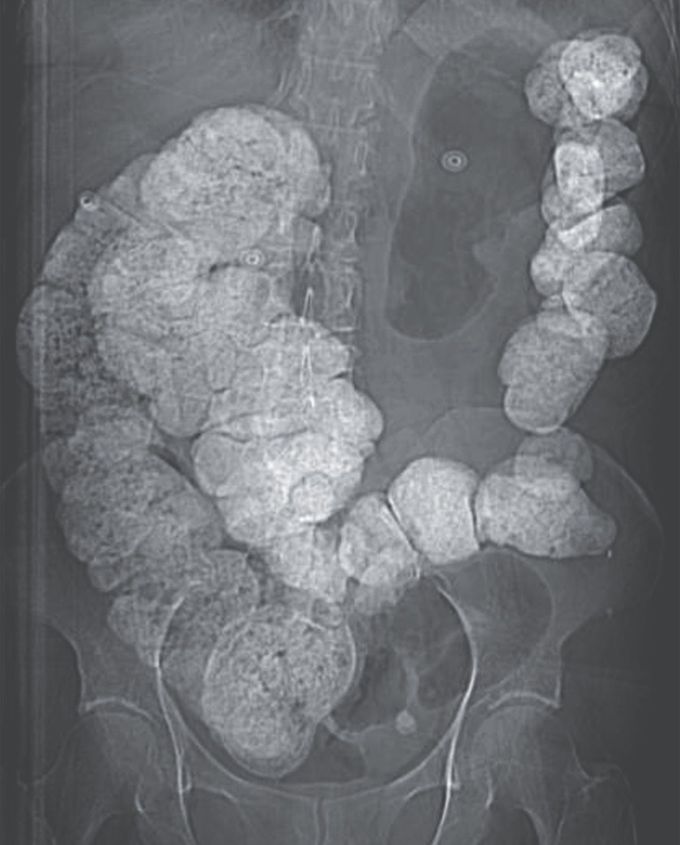


Bismuth Subsalicylate Poisoning
A 70-year-old woman with depression and irritable bowel syndrome presented to the emergency department with a 3-day history of altered mental status, shortness of breath, nausea, and vomiting. She had recently increased her daily intake of liquid bismuth subsalicylate, which she had been using for irritable bowel symptoms, to treat worsening diarrhea and abdominal pain. Physical examination was notable for a respiratory rate of 22 breaths per minute, confusion, and mild, diffuse abdominal pain. Laboratory testing showed primary anion-gap metabolic acidosis, primary respiratory alkalosis, and a salicylate level of 76 mg per deciliter (5.50 mmol per liter; normal value, <5 mg per deciliter [0.35 mmol per liter]). An abdominal radiograph, for which no oral contrast material had been administered, showed intraluminal radiopaque material throughout the bowel. A diagnosis of bismuth subsalicylate poisoning was made. Bismuth subsalicylate is metabolized to bismuth and salicylic acid in the gastrointestinal tract. Large quantities of bismuth appear radiopaque owing to the high density of the substance, which approaches that of lead. After treatment with sodium bicarbonate infusion and hemodialysis for salicylate poisoning, the patient’s symptoms abated; a repeat salicylate level was 0.

